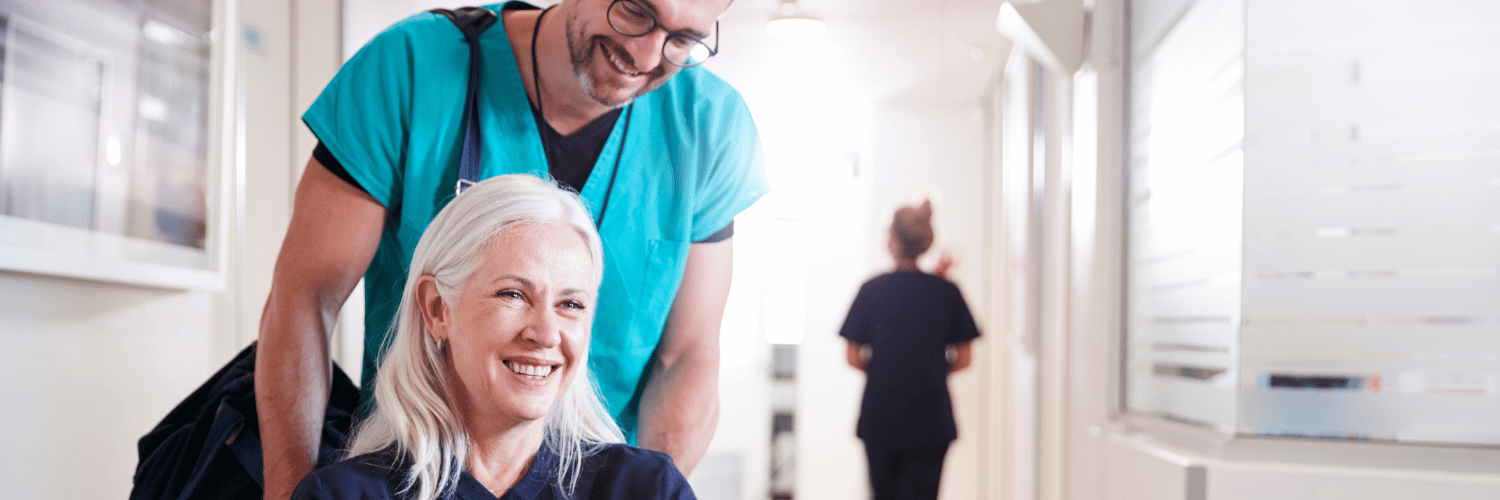The transition from the hospital discharge to home can be a critical time for elderly patients and their caregivers. As a family member providing care, it’s essential to be well-prepared for what’s to come after discharge. Here’s a step-by-step guide for family caregivers to help you understand the discharge plan, medications, equipment, and level of care your loved one will need as they move from hospital care to recovery at home.
1. Patient Restrictions and Activities
Before leaving the hospital, ask the medical team about any specific restrictions. Will your loved one be able to take a bath or shower? Can they lift heavy items or walk upstairs? These are important considerations, especially if your loved one will need 24/7 care. You’ll need to understand if they can perform daily activities independently or with help.
You may also be tasked with helping your family member follow exercise routines, so it’s wise to ask for clear instructions. Training other family members to assist with these exercises may also be necessary, and the sooner you start planning, the smoother the transition will be.
2. Healthcare Tasks
Some healthcare tasks may require special training. For instance, wound care, administering injections, or recording vital signs might be new responsibilities for you. Whenever possible, try to receive hands-on training from the hospital staff before discharge. It’s also helpful to ask for recommendations on home health or home care services. If these tasks feel overwhelming, hiring a professional caregiver can be a valuable resource. They can assist with care tasks, and some are trained in specialized services.
3. Medication Management after Hospital Discharge
Proper medication management is one of the most important aspects of post-hospital care. Will you be responsible for ensuring medications are taken at the right time and in the correct dosages? Request a detailed chart from the hospital that outlines all prescribed medications, their dosages, and instructions for when and how to take them. Mealtimes and bedtime are often convenient cues for remembering medication schedules.
It’s also critical to be aware of any potential side effects and what to do if they arise. Be sure everyone involved in the caregiving process is informed about the medications and any associated risks. Don’t hesitate to consult with a pharmacist, who can be a valuable resource for understanding prescriptions, possible side effects, and convenient medication delivery options.

4. Follow-Up Care after Hospital Discharge
Scheduling and attending follow-up appointments are key to your loved one’s recovery. Clarify with the healthcare team who will handle arranging appointments and how often they need to occur. Additionally, transportation may become an issue, especially if your family member requires frequent visits to doctors or therapists. Some professional caregivers can also assist with transportation, providing peace of mind.
6. Equipment and Supplies
After discharge, you might need specific medical equipment, such as a hospital bed, oxygen supply, or mobility aids like a walker or shower chair. Create a list of the necessary items, and make sure you understand how to use them. If you’ll need assistance or training to operate these devices, ask the hospital staff or a home health service to provide instruction before your family member is discharged.
7. Home Safety
A safe home environment is crucial for your loved one’s recovery. Take a home safety assessment before discharge, ensuring the home is free of trip hazards, such as loose rugs or cords. You may need to rearrange furniture to accommodate larger medical equipment, and installing grab bars in the bathroom or along hallways can provide extra support. Ensuring your loved one has non-slip footwear will also help prevent falls.
It’s also useful to post a medication schedule, emergency contacts, and care instructions in a visible place for other family members and caregivers to easily access.
Hospital discharge is a pivotal moment in your loved one’s recovery. By understanding the discharge plan, medications, equipment, and care requirements, you can create a smoother transition from the hospital to home. Preparation, organization, and utilizing available resources are your greatest tools for ensuring your loved one’s successful recovery.
Looking for Home Care Services?
We are happy to help!

